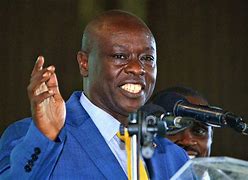On Monday, October 28, impeached Deputy President Rigathi Gachagua filed a petition at the Court of Appeal, aiming to halt ongoing proceedings at the High Court and contesting the three-judge bench overseeing the case. Gachagua seeks an injunction from the appellate court to stop the High Court’s impeachment hearing, citing dissatisfaction with a recent ruling that allowed Deputy Chief Justice (DCJ) Philomena Mwilu to appoint the judicial panel.
Represented by his lawyer, John Njomo, Gachagua argues that the ruling was flawed and misinterpreted Article 165 (4) of the Constitution. His petition further contends that only the Chief Justice has the constitutional authority to empanel judges, as per Articles 25, 27, 47, 48, 50 (1), and 260, and asserts that DCJ Mwilu’s action was outside her jurisdiction.
“The applicant contends that the stated ruling is based not only on a misinterpretation of Article 165 (4) but also on a violation of Articles 25, 27, 47, 48, 50 (1), and 260, as the Constitution grants the Chief Justice the sole power to assign and empanel judges,” the petition reads in part.
Last week, a High Court panel comprising Justices Eric Ogola, Anthony Mrima, and Frida Mugambi upheld Mwilu’s decision to constitute the bench on behalf of Chief Justice Martha Koome. In delivering the ruling, Justice Mrima referenced Article 165 (4), which he stated permits the Deputy Chief Justice to fulfill certain administrative functions, such as empanelling judges, in instances where the Chief Justice is unavailable.
“Our finding is that the Chief Justice’s role in assigning benches is an administrative function that can, for good reason, be carried out by the DCJ when the CJ is unable to perform it,” stated Justice Mrima.


